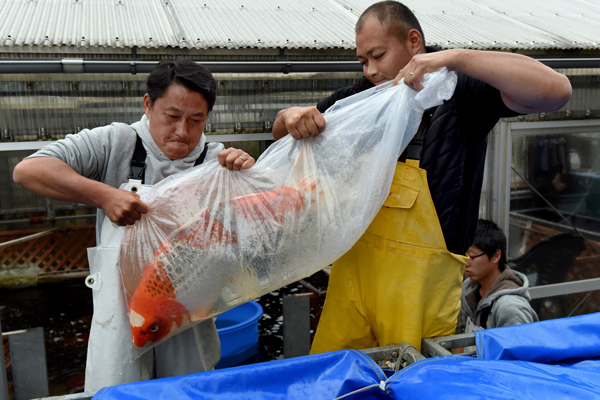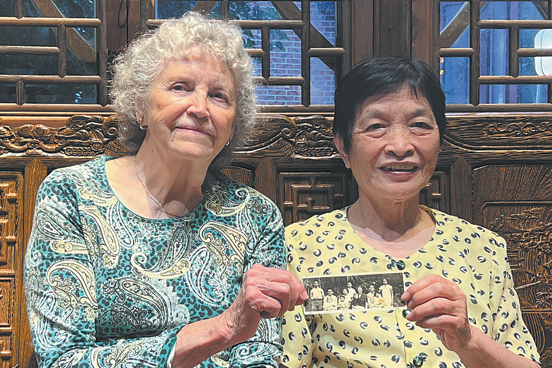Priceless Japanese fish make a splash
China Daily | Updated: 2018-01-08 10:32

KAZO, Japan - Handreared for their color and beauty, koi carp have become an iconic symbol of Japan that can sell for hundreds of thousands of dollars and are becoming more popular elsewhere in Asia.
When visiting US President Donald Trump was snapped unceremoniously dumping the last of a box of feed into a palace pond in Tokyo, the nation's koi carp were brought to the world's attention.
But the fish have for decades been popular in Japan, and the most prized specimens (known as "nishikigoi") are even taken to highly competitive "beauty parades".
Mikinori Kurikara, a koi breeder in Saitama, north of Tokyo, who had thousands of tiny "nishikigoi" dart around deep basins of carefully purified water, meticulously divided by age and color.
"It's a really delicate job. Everything matters: the ground, the water quality, the food," explained the 48-year-old, who took over the farm from his father and is training his son, half his age, in the subtle arts of koi breeding.
These days, any self-respecting traditional Japanese garden has plenty of colorful koi gracing its ponds. And the craze gradually spread into other parts of Asia.
They are especially popular in China, where carp swimming against the tide symbolizes the idea of "perseverance leading to riches" - rather like people climbing the social ladder, said Yutaka Suga, professor at the Institute for Advanced Studies on Asia at Tokyo University.
Today, koi is big business and Japanese exports are booming - in 2016, Japan exported a record 295 metric ton of koi carp, generating turnover of 3.5 billion yen ($30.96 million), an increase of almost 50 percent from 2007, according to Japan's agriculture ministry.
As for individual carp, "the prices have become insane," said carp association boss Isamu Hattori.
"A two-year-old carp can sell for 30 million yen each ($265,406) whereas 10 years ago, 2 million yen was already a very good price," he said.
Like racehorse owners, many foreign owners leave their prized koi in their home Japanese farms so they can compete in the most prestigious fishy pageants, which are only open to domestic rearers.
Chinese koi collector Yuan Jiandong was in Tokyo to cheer on some of his own carp.
"It's not a way of making money. It's a way of spending it for fun," laughed the pharmaceutical boss from Shanghai.
"When you see these beautiful fish gliding around in your pond, you forget the stresses of daily life and you find peace of mind."
And you can't put a price on that.
Agence France-presse
























